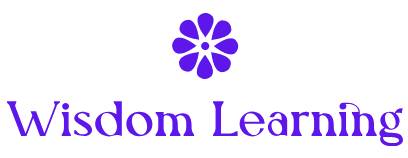Table of Contents
In today’s fast-paced world, achieving mental clarity can feel like an elusive goal. The constant barrage of information and daily stressors can cloud our thoughts and overwhelm our minds. Meditation is a powerful practice that can help clear mental fog, improve focus, and cultivate a sense of inner peace. This guide will walk you through the basics of starting a meditation practice, providing you with the tools and techniques needed to enhance your mental clarity.
Understanding Meditation
Meditation is a mental practice designed to enhance concentration, mindfulness, and overall mental well-being. It involves focusing your attention and eliminating the stream of jumbled thoughts that may be crowding your mind. Through regular practice, meditation can help reduce stress, increase self-awareness, and improve emotional health.
Benefits of Meditation for Mental Clarity
1. Improved Focus and Concentration
Meditation trains your mind to focus on a single point of attention, whether it’s your breath, a mantra, or a visual object. This practice enhances your ability to concentrate and reduces distractions, leading to improved cognitive performance.
2. Reduced Stress and Anxiety
Regular meditation practice has been shown to lower levels of cortisol, the stress hormone. By calming the mind and body, meditation helps manage stress and reduces symptoms of anxiety.
3. Enhanced Self-Awareness
Meditation encourages introspection and self-reflection, allowing you to gain a deeper understanding of your thoughts and emotions. This self-awareness can lead to improved decision-making and a clearer sense of purpose.
4. Better Emotional Regulation
Through mindfulness and meditation, you can develop a more balanced emotional state. This helps you respond to challenging situations with greater composure and reduces emotional reactivity.

Getting Started with Meditation
1. Choose a Comfortable Space
Find a quiet and comfortable place where you won’t be disturbed. It could be a dedicated meditation corner, a quiet room, or even a peaceful outdoor spot. Ensure the space is free from distractions and conducive to relaxation.
2. Set a Time Limit
Start with a manageable time frame, especially if you’re new to meditation. Aim for 5-10 minutes per session. As you become more comfortable, you can gradually increase the duration to 15-30 minutes or longer.
3. Find a Comfortable Position
Choose a comfortable posture that allows you to stay relaxed and alert. You can sit on a chair, cushion, or the floor, with your back straight and your hands resting on your lap or knees. Alternatively, you can lie down if sitting is uncomfortable.
4. Focus on Your Breath
Begin by bringing your attention to your breath. Observe the natural rhythm of your inhalations and exhalations without trying to control them. Notice how your breath feels as it enters and leaves your body.

5. Use a Guided Meditation
If you’re unsure where to start, guided meditations can be helpful. These are available through apps, websites, or recorded sessions and provide step-by-step instructions and prompts to guide you through the practice.
6. Practice Mindfulness
In addition to focusing on your breath, you can practice mindfulness by observing your thoughts and sensations without judgment. When your mind wanders, gently bring your focus back to your breath or your chosen point of attention.
Common Meditation Techniques
**1. *Mindfulness Meditation*
Mindfulness meditation involves paying attention to the present moment without judgment. Focus on your breath, bodily sensations, or a specific object, and gently redirect your attention back whenever your mind wanders.
**2. *Loving-Kindness Meditation*
Loving-kindness meditation, or Metta, involves cultivating feelings of compassion and goodwill towards yourself and others. Begin by silently repeating phrases like “May I be happy” and gradually extend these wishes to loved ones, acquaintances, and even people you find challenging.
**3. *Body Scan Meditation*
Body scan meditation involves bringing attention to different parts of your body, observing sensations without judgment. Start from the top of your head and slowly move down to your toes, paying attention to any areas of tension or discomfort.
**4. *Transcendental Meditation*
Transcendental meditation involves silently repeating a specific mantra or word to achieve a state of restful awareness. This technique requires formal instruction and practice but can be highly effective for achieving mental clarity.

Tips for a Successful Meditation Practice
**1. *Be Consistent*
Consistency is key to experiencing the benefits of meditation. Try to meditate at the same time each day, whether in the morning, during a lunch break, or before bed. Establishing a routine helps make meditation a habit.
**2. *Be Patient*
Meditation is a skill that develops over time. It’s normal for your mind to wander, especially in the beginning. Be patient with yourself and gently guide your focus back to your breath or chosen point of attention.
**3. *Start Small*
Begin with shorter sessions and gradually increase the duration as you become more comfortable. Short, regular practice is more beneficial than occasional long sessions.
**4. *Use Resources*
Take advantage of resources like meditation apps, online videos, or local meditation classes. These can provide guidance, structure, and support as you develop your practice.
Overcoming Challenges
**1. *Dealing with a Wandering Mind*
It’s natural for your mind to wander during meditation. When you notice your thoughts drifting, gently bring your focus back to your breath or point of attention. Avoid self-criticism and accept that this is part of the process.
**2. *Finding Time*
If you struggle to find time for meditation, incorporate it into your daily routine by meditating first thing in the morning or right before bed. Even a few minutes of practice can be beneficial.
**3. *Staying Motivated*
To stay motivated, remind yourself of the benefits of meditation and how it enhances mental clarity and well-being. Keep a journal to track your progress and reflect on the positive changes you experience.
Conclusion
Meditation is a valuable practice for achieving mental clarity and enhancing overall well-being. By incorporating meditation into your daily routine, you can improve focus, reduce stress, and gain greater self-awareness. Start with simple techniques, be patient with yourself, and maintain consistency to experience the full benefits of meditation. With time and practice, you’ll find that meditation becomes a powerful tool for cultivating mental clarity and fostering a sense of inner peace.


